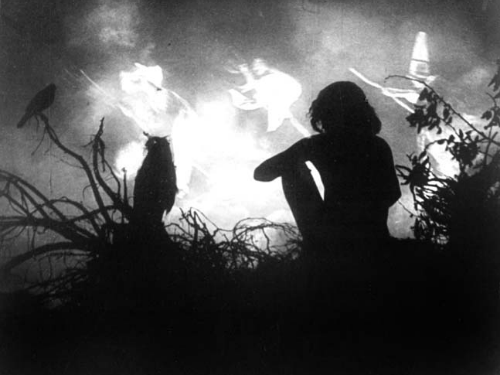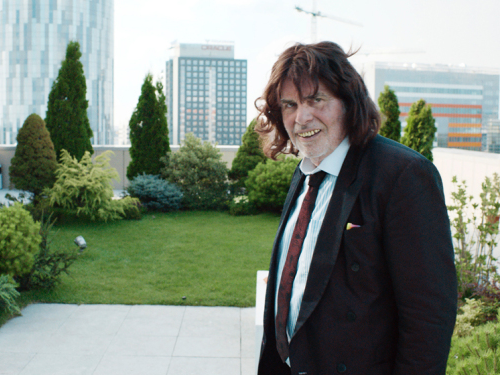This week will be the last edition of Sabzian Selects, our weekly selection of the online film offer. The lockdown has been a good opportunity to discover films in the comfort of our homes. But the space of the theatre is where cinema belongs. In his text “Leaving the Movie Theatre”, Roland Barthes reflects on the darkness of the cinema, a “substance of reverie” where a “diffused eroticism” is at work in the body and the mind of the cinema spectator. The cinema is a space that shields off the outside world. For the duration of the movie, there is no other reality than the screen with its movements, colours and the sounds that encapsulate the immobile spectator. Barthes writes: “It is in this urban dark that the body’s freedom is generated; this invisible work of possible affects emerges from a veritable cinematographic cocoon; the movie spectator could easily appropriate the silkworm’s motto: Inclusum labor illustrat; it is because I am enclosed that I work and glow with all my desire.”
In his text ‘Rapture as Resistance. Notes on Leaving the Movie Theatre’, Herman Asselberghs takes a closer look at Barthes’s reflection on the movie theatre.
But before we leave our houses to step inside the movie theatre, we present our last three selected films.
During the lockdown, the independent film club Météorites has presented a selection of films, among which is Häxan by Benjamin Christensen. This silent film from 1922 gives a didactic yet often playful account of witchcraft. Accusations of witchcraft mostly affected women, and the film states that they often were the result of a lack of knowledge of mental illnesses.
In Häxan, one can observe the cinematic fascination for women who appear to be mysterious, hysterical or erratic, which have been remarkably recurring features of many female roles throughout film history.
Set in 1623, Vredens dag [Days of Wrath] (1943) by Carl Theodor Dreyer takes place in the time also addressed in Häxan. Submitted to a patriarchal marriage to a man of power, Anne initially puts effort in her supporting role as wife to her husband. But when his son who is her age appears, he kindles a desire in her – along with hidden powers. Dreyer refuses to provide clarity on whether Anne really masters witchcraft or not. It is only because of her confession that her forces are affirmed. By condemning herself, she validates her power.
In the Dutch translation of a text on Dreyer’s oeuvre, Frieda Grafe reflects on the way women in Dreyer’s films defy the set of rules. But she also points her attention to the role of the fathers, who are stuck in their role model of the “Pater Familias”: the father of the family, and of society. Their tragedy is the recognition that their role might have been played out.
Toni Erdmann (2016) by Maren Ade starts when the role of the father has already been ridiculed for a long time. In the film, Winfried, the father, tries to reconnect with his daughter, Ines, who leads an ambitious life working for an oil-concern. Transcending the “tyrant-father” trope, he disrupts her life with his practical jokes. On one occasion, Ines creates a situation in which she apparently bewitches her colleagues. At this moment, which we will not reveal here, they could have proclaimed her crazy and exiled her to the category of the mentally ill. In the past, women who acted like Ines would have been accused of witchcraft, and later they would have been institutionalized, but in this scene the other men and women sheepishly follow her lead. The film reveals that the definition between witchcraft, psychiatric disorders and behaviour that is called “normal” predominantly depends on the ability to exercise power.
In Vredens dag, Anne initially defies the hierarchies that constrain her passions and her powers, but it’s only in Toni Erdmann that the female character’s authority is validated. However equivocal, the moment when Ines seems to be enchanted, she defines the reality for others to submit to, as they are enchanted by her. Her character finally has the mastery to overcome the role that has been assigned so often to women throughout film history.
Häxan (Benjamin Christensen, 1922) | Watch here
Vredens dag [Day of Wrath] (Carl Theodor Dreyer, 1943) | Watch here
Toni Erdmann (Maren Ade, 2016) | Watch here




